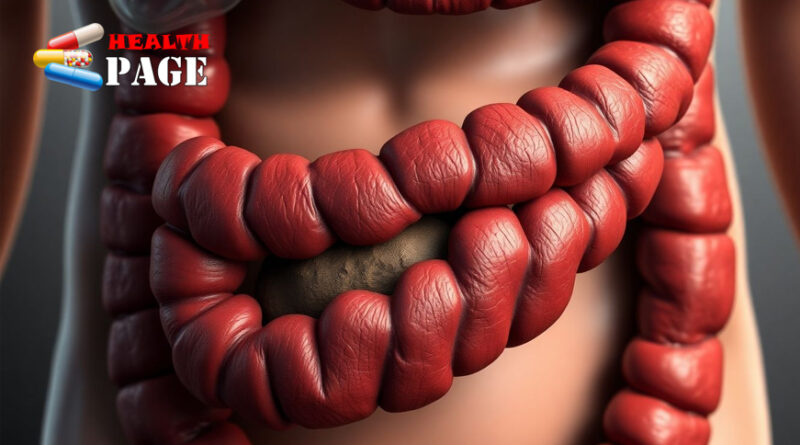What is constipation a detail article
Ever felt like your body is holding things hostage? Dealing with constipation is no fun. Many of us go through this. It can throw off your entire day.
Constipation is when you have trouble having bowel movements. It affects many people. It can impact your health and how you feel every day. This article will help you understand, manage, and even prevent constipation.
What is Constipation? Defining the Digestive Slowdown
Let’s explore constipation. We’ll look at what it means for your body. We’ll also check out how your body processes food.
Defining Constipation: Frequency, Consistency, and Strain
What exactly is constipation? Doctors often use the Rome IV criteria. This helps them define it. It looks at how often you go, how hard it is to go, and how much you strain. Having less than three bowel movements a week can be a sign. Hard stools and straining are also key signs.
How Digestion Works: From Food to Waste
Digestion is a long trip. Food goes in, and waste comes out. First, your body breaks down food. Then, it absorbs nutrients. What’s left goes to the colon. The colon absorbs water. Then it forms stool. If things slow down, too much water is absorbed. This makes the stool hard and hard to pass.
Types of Constipation: Acute vs. Chronic
Not all constipation is the same. Acute constipation is short-term. It might happen when you travel. It could also be related to a change in diet. Chronic constipation lasts longer. It can be a sign of a bigger issue. Talk to a doctor if it doesn’t go away.
Common Causes of Constipation: Identifying the Root Problem

Many things can cause constipation. Let’s look at some usual suspects. These can include your lifestyle, diet, or medicine.
Lifestyle Factors: Diet, Hydration, and Exercise
Your habits matter a lot. Fiber is key for regular bowel movements. Think fruits, veggies, and whole grains. Water helps too. It keeps things moving smoothly. Exercise also plays a part. Physical activity helps your digestive system.
Medical Conditions: Underlying Health Issues
Sometimes, constipation is a sign of another health problem. Irritable bowel syndrome (IBS) can cause it. So can hypothyroidism. Neurological disorders might also be a cause. Talk to your doctor to rule out medical issues.
Medications: A Potential Side Effect
Some medicines can cause constipation. Painkillers are known for this. Antidepressants can also slow things down. Iron supplements might be the culprit. Always check the side effects of your medications.
Recognizing Constipation: Symptoms and Diagnosis
Knowing the symptoms is important. This can help you know when you need help. Let’s discuss what to look for and when to see a doctor.
Identifying Symptoms: Beyond Infrequent Bowel Movements
Constipation is more than just not going often. You might strain a lot. Your stools might be hard. You may feel bloated or have belly pain. Feeling like you can’t empty your bowels is another sign.
When to See a Doctor: Recognizing Red Flags
When should you worry? If you see blood in your stool, see a doctor. If you have severe pain, get it checked out. Unexplained weight loss is another red flag. Don’t ignore these signs.
Diagnostic Tests: Ruling Out Underlying Issues
Doctors have ways to find out what’s wrong. A colonoscopy can check your colon. Anorectal function tests look at how your rectum works. These tests can help find the cause of your constipation.
Relief Strategies: Treating and Managing Constipation
There are many ways to ease constipation. Let’s discuss lifestyle changes. We’ll also look at over-the-counter options and medical treatments.
Lifestyle Adjustments: Diet, Exercise, and Habits
Small changes can make a huge impact. Eat more fiber. Aim for 25-30 grams a day. Drink lots of water. Try to get at least eight glasses daily. Regular exercise can also help. Even a short walk can get things moving.
Over-the-Counter Remedies: Laxatives and Stool Softeners
Laxatives can provide relief. Stool softeners make stools easier to pass. Fiber supplements add bulk. Osmotic laxatives draw water into the colon. Use these wisely. Always follow the directions.
Medical Treatments: When More Intervention is Needed
Sometimes, you need more help. Prescription medications can stimulate your bowels. Biofeedback therapy can train your muscles. These treatments can help when other options don’t work.
Preventing Constipation: Long-Term Strategies for Digestive Health
Preventing constipation is key. Let’s look at ways to keep your digestive system healthy. These strategies can help you avoid future issues.
Building a Constipation-Prevention Diet
Food is your ally. Focus on high-fiber foods. Probiotics can boost gut health. Prebiotics feed the good bacteria. Eat a mix of fruits, vegetables, and whole grains.
Staying Hydrated: The Importance of Water
Water keeps things flowing. Aim for at least eight glasses of water a day. Carry a water bottle. Drink throughout the day.
Establishing Healthy Bowel Habits: Routine and Relaxation
Your habits matter. Try to go to the bathroom at the same time each day. Don’t ignore the urge to go. Stress can affect your bowels. Find ways to relax.
Conclusion
Constipation is a common problem. Knowing the causes and symptoms helps. You can manage and prevent it. Lifestyle changes, diet, and habits make a huge difference. Don’t ignore persistent constipation. Talk to a healthcare provider. They can provide the support you need. Start implementing these tips today!



Pingback: Scaphoid Abdomen: Causes, Symptoms, and Treatment Explained
Pingback: Saxenda vs Zepbound: Weight Loss Medications Compared
Pingback: 7 Alarming Hallucinations Facts & ICD-10 Codes Explained
Pingback: 3 Proven Tips to Relieve Constipation During Pregnancy
Pingback: T194: 7 Shocking Facts About This White Long Pill
Pingback: What is the purpose of a digital rectal exam?
Pingback: Real Honey: Natural Remedy to Help Treat 13 Diseases